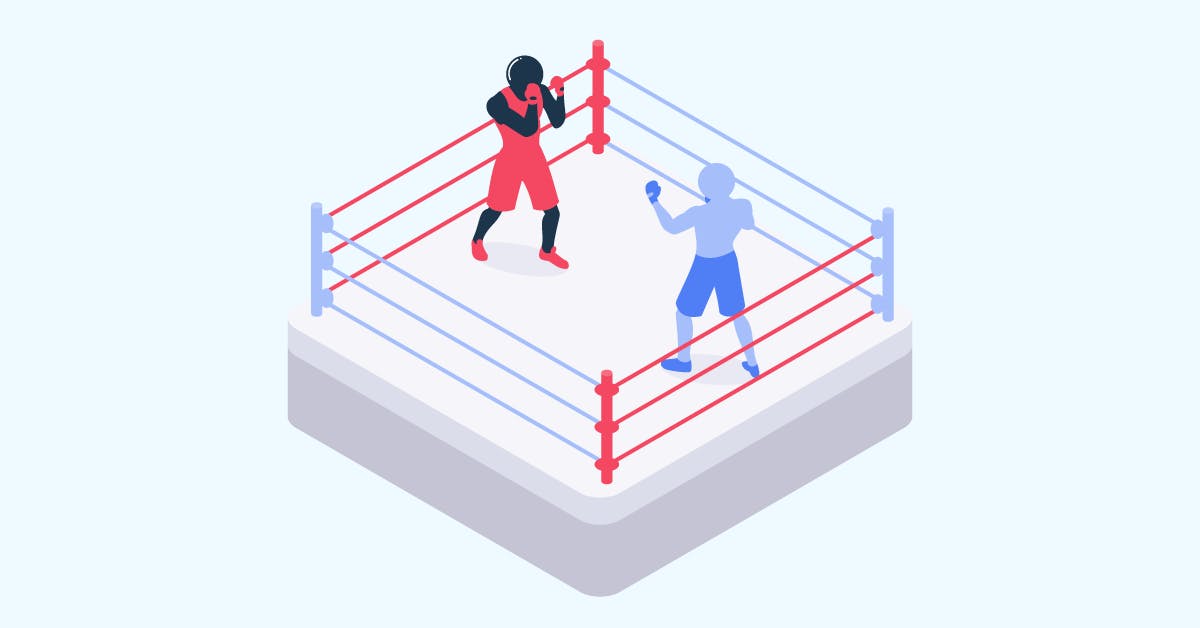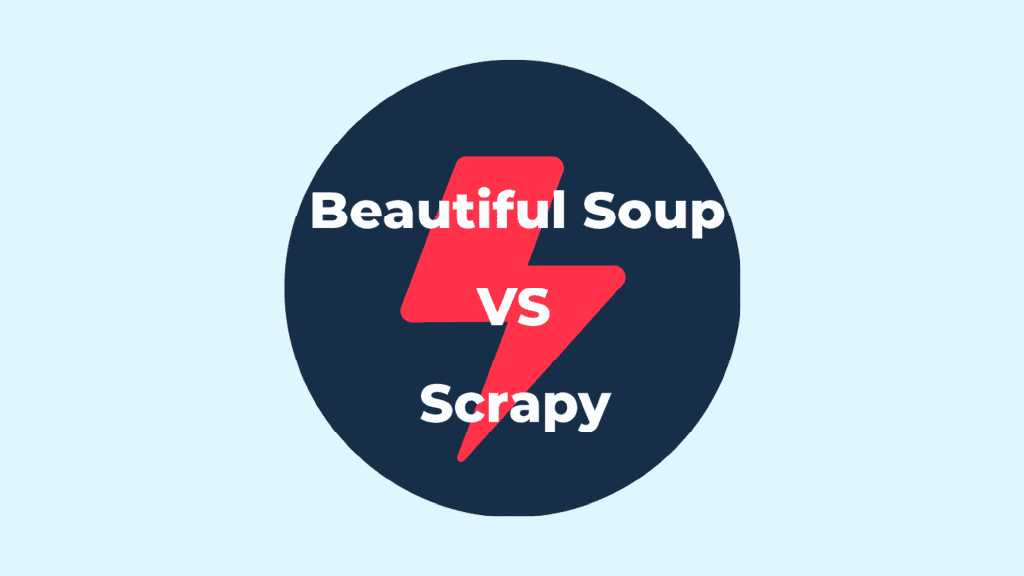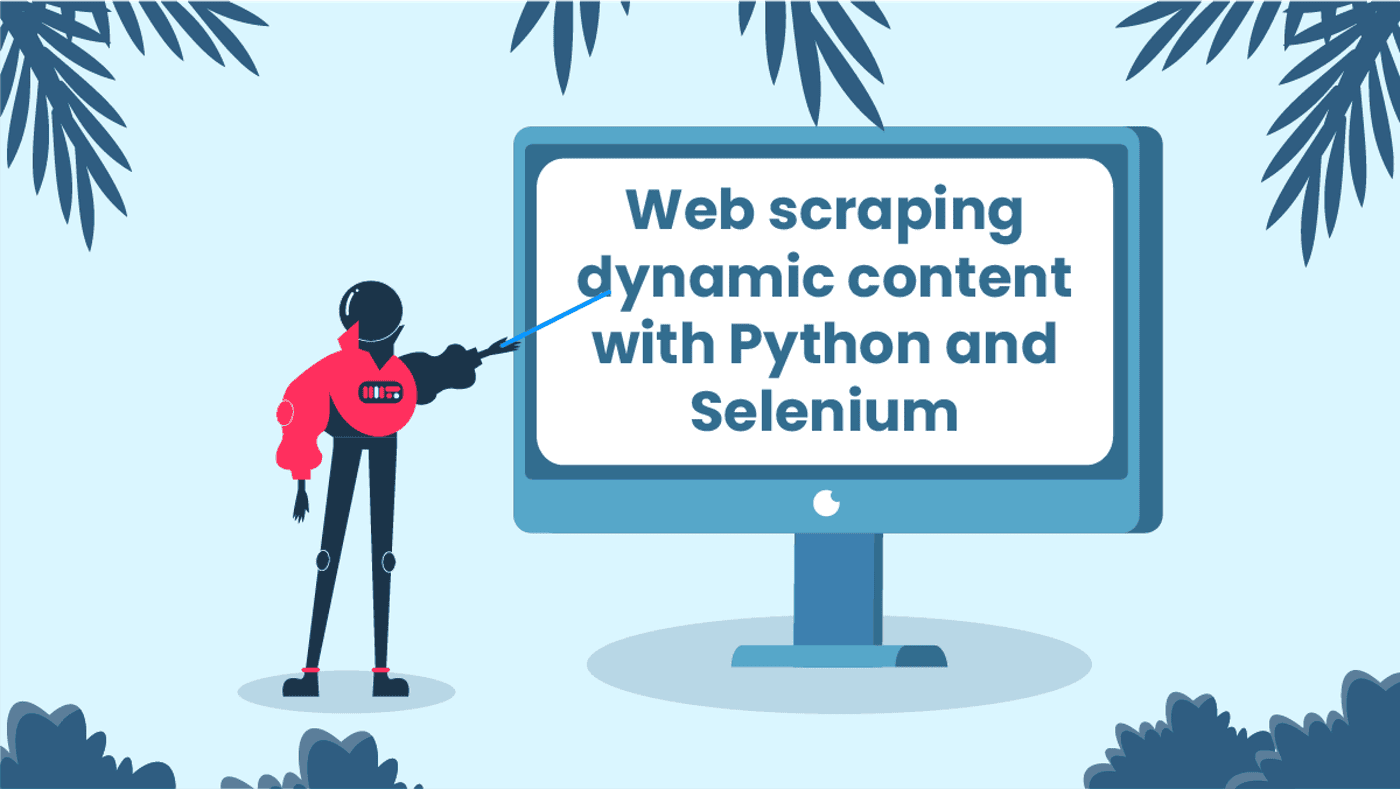Scrapy vs BeautifulSoup – Which is Better for You?
Scrapy and BeautifulSoup are two extremely popular Python-based tools that will enable you to scrape the web. Ah, and they’re free and open-source! So if you’re thinking of building a scraper, you might be a bit lost between the two options.
Don’t worry, we’ve got you covered. This blog post will compare these two tools by looking over their main fors and againsts. Ready? Let’s go!
Scrapy
Scrapy is a web crawling and scraping framework that allows you to crawl various web pages and then download, parse and store data you’ve scraped. Yup, you guessed it right, this Py-based tool is literally all-in-one as it doesn’t require any other additions. It can do everything on its own!
Even though Scrapy already packs all the essentials for your scraping journey, it also supports other extensions and middleware. This gives a tremendous advantage for the user as it allows you to customize and make sure you’re getting exactly what you need. It’s a great relief for those who’re dealing with JavaScript as Scrapy doesn’t support it on its own. Simply couple Scrapy with a headless browser like Selenium, Puppeteer, or Splash and you’ve unlocked JavaScript!
Besides that, Scrapy is also very powerful and fast. It can handle asynchronous requests, allowing you to scrape many different pages at once while fully controlling what information is being scraped. They’re not joking with the whole all-in-one business.
BeautifulSoup
BeautifulSoup is a Python parsing library that allows you to pull data from HTML or XML pages. As for the crawling capabilities… Well, it doesn't have any. See, you've to understand that BeautifulSoup isn't an actual framework but rather a helpful tool that extracts specific elements from a page.
This Py library sits on third-party Python parsers such as html.parser, lxml, and html5lib.These different parsers will allow you to try out different parsing strategies, so don't be afraid to knock yourself out! For example, html5lib is known for its ability to parse pages the same way a web browser does, but unfortunately, it is very slow. For extra speed, you should choose lxml.
Probably the best thing is that you literally don't need to spend hours just to write a basic scraper with BeautifulSoup – it's extremely user-friendly as long as you know your Pythonic idioms. So if your scraping needs are simple and the project is rather small – this is the perfect scraping solution for you.

Scrapy vs. BeautifulSoup
The time has come for the final countdown. Are you ready? Hope so, as it's a head-to-head battle between Scrapy and BeautifulSoup! These two will be compared in terms of speed, usability, scalability, community, whether or not they are compatible with python 2.7 and 3, and of course – with proxies. Let's roll!
Speed
Scrapy is incredibly fast. Its ability to send asynchronous requests makes it hands-down faster than BeautifulSoup. This means that you’ll be able to scrape and extract data from many pages at once.
BeautifulSoup doesn’t have the means to crawl and scrape pages by itself. In its essence, it’s just a bundle of different parsers. To make it function like a scraper, you’ll need other Python libraries, like requests, and that results in extra time. Not to mention that you’ll also have to set it up to function correctly. See, you need requests to retrieve pages from the internet so that BeautifulSoup could pick everything you need.
On the other hand, you can send parallelizing requests with BeautifulSoup. A bit of a plot twist, isn’t it? Well, yup, you just need to set up BeautifulSoup correctly with Py request libraries, and voilà! You’re in the parallelizing requests land! Unfortunately, they aren’t as efficient and fast as Scrapy’s asynchronous requests.
Usability and beginner friendliness
Both Scrapy and BeautifulSoup are documented very well. But when it comes to the question of which is easier to learn and run, BeautifulSoup is definitely the winner.
The main difference is that Scrapy was built to be extendible and versatile, but this leads to a certain level of complexity. You kinda need some knowledge to wrap your head around all those features and make the most of them.
As for BeautifulSoup, it’s only a library to pull data from HTML or XML pages. If you want to make this library function like a web scraper, you’ll need some serious elbow grease. But if your scraping needs are simple, BeautifulSoup is better for you simply because it offers less functionality.
So, if you’re thinking about big projects and want to seriously up your scraping game, Scrapy is the one for you. But if you’re going for smaller to medium size projects – don’t overthink and grab easy and delicious BeautifulSoup.

Scalability
As mentioned before, Scrapy is the best Py suite to use if you have a large project. It’s a lot more flexible and fits different projects. Scrapy can use concurrent and asynchronous requests, which works great with rotating residential proxies. This pairing can literally scale your project to the skies! Of course, using this framework can be a bit challenging at first, but if you’re looking for scale, you should choose Scrapy.
BeautifulSoup is good for smaller to medium projects. The main purpose of this Python library is to parse data. While it works nicely with other Py libraries to fit your scraping needs, it lacks features you’d need to scrape data at scale.
Community
Both Scrapy and BeautifulSoup have nice documentation, setup tutorials, and more. So, community support might not seem very important at first glance. However, if you’ve been into the scraping business before, you know that a good thread on Stack Exchange can literally make or break your project.
In this sense, Scrapy is a lot more advanced than BeautifulSoup, because it has a lit community. This stems from Scrapy’s functionality – its fans use it for various projects and stay with it longer. Also, its features and perks require more time to understand. As for BeautifulSoup, you won’t find as many discussions and info about different errors. The main reason is that this Py library is much easier to use and rather simple.
Compatibility with Python 2.7 and 3
We have our first tie in this cracking showdown! Both BeautifulSoup and Scrapy support Python 2.7 and 3, so you won’t encounter any syntax issues with either one of the two.
Compatibility with proxies
Scraping on a large scale means that you’ll be making multiple requests at the same time. That may lead to unwanted IP blocks or myriads of CAPTCHAS. You’ll need proxies to avoid all those hiccups and get the desired results.
It’s best to use rotating proxies as IPs will change with every request, making you undetectable and your scraping obstacle-free. And here comes another tie! Both Scrapy and BeautifulSoup can use rotating proxies to make scraping flawless. We have Scrapy proxy middleware and BeautifulSoup solutions on our Github page.
Other useful tools and Py libraries
Ok, but what about other tools and Python libraries? Surely, there are other noteworthy options that are Python-driven! Let’s overview some, shall we?
Selenium
Originally, Selenium was designed to help with web testing. It’s an API that gives you control over a headless browser and lets you program it the way you need it. So why do we mention Selenium here in this battle between Scrapy and BeautifulSoup?
Well, this worthy candidate offers something neither Scrapy nor BeautifulSoup can. Selenium can help scrape dynamic website content because it can run on different programming languages – Java, Python, node.js, and Ruby. Unlike for BeautifulSoup and Scrapy, JavaScript is no hard nut to crack for Selenium! This is one of the main reasons why Selenium is so appealing to devs.
But there’s a catch. Since Selenium controls everything in a headless browser, it’s a heavy-duty API that needs resources. The result? You guessed it, Selenium is oh so slow compared to Scrapy and BeautifulSoup. Besides that, this framework requires some serious know-how to operate it. You can read more about web scraping with Selenium in our other blog post.
requests-HTML
This neat Python library lets you parse HTML files. To extract the information that you need, it uses X Path Selectors and CSS Selectors. Other awesome features include asynchronous data collection, JavaScrip support, and automated redirects.
That’s why it’s such a natural combo with BeautifulSoup – what the former lacks, requests-HTML provides.
lxml
Even though there are quite a few XML parsers out there in the world wide web, developers often opt to write their own parsers for XML and HTML. And that’s why lxml is so appealing.
See, Ixml is a fast and reliable Py library that deals with HTML and XML processing. It’s extremely user-friendly and nicely documented. This means that lxml always has your back if anything happens.
Wrapping up
Well, now you probably have quite a bit of understanding about which Py-based scraper might be better for you. Both Scrapy and BeautifulSoup can give you the results you need. Faced with a colossal scraping project? Scrapy is the one to go for. But if it’s just a few pages from time to time, BeautifulSoup will do the job just as well.
If you’re looking for other web scraping solutions, you needn’t look far. Smartproxy recently launched a new product – No-Code Scraper. This tool is completely code-free and does it all, scraping and parsing. Just tell the software what you need, and it’ll deliver everything with no sweat! Magic, right?
About the author

James Keenan
Senior content writer
The automation and anonymity evangelist at Smartproxy. He believes in data freedom and everyone’s right to become a self-starter. James is here to share knowledge and help you succeed with residential proxies.
All information on Smartproxy Blog is provided on an as is basis and for informational purposes only. We make no representation and disclaim all liability with respect to your use of any information contained on Smartproxy Blog or any third-party websites that may belinked therein.








